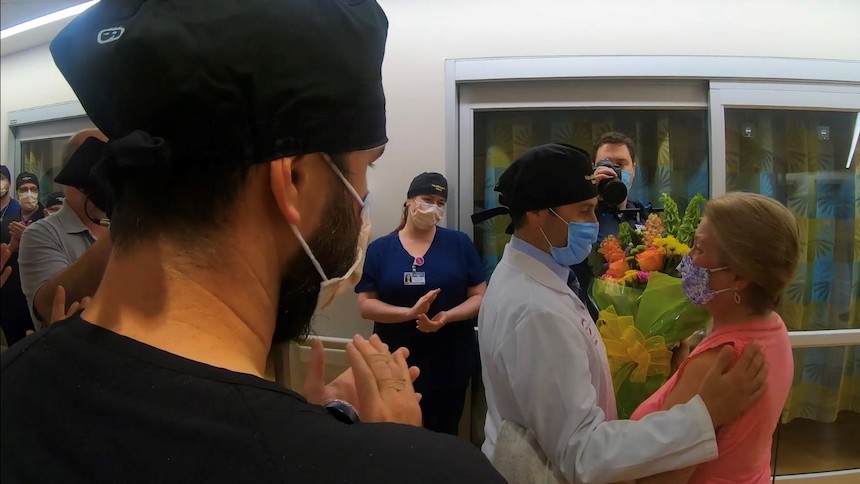Avoiding Daily Risks of 5 Germ Hotspots
By Wendy Bacigalupi-Bednarz, Editorial Contributor
No matter where we go, one thing is certain — germs will follow. And, while there’s no iron-clad way to avoid them, we can take precautions to reduce the risks of getting sick, says Dr. Javier Lopez-De-Arco, a primary care physician with Orlando Health Physician Associates. Let’s take a look at five germ hotspots you encounter daily and the steps you can take to stop germs in their tracks.
The Kitchen Sink
The kitchen is where we prepare meals for ourselves and our families. It’s probably the least germy place in the house, right? Wrong. In fact, the kitchen sink is one of the germiest places in the home. It’s where we wash foods and utensils, and dispose of our food scraps. This makes the kitchen sink an ideal gathering place for more than 500,000 bacteria — 10 times more than on a toilet seat
What to Do
- Clean the sink with hot, soapy water, especially after preparing raw food, meat and poultry.
- Wipe down the sink with disinfecting wipes daily.
The Toothbrush
We put our toothbrushes in our mouths thinking they’re clean and germ-free. But are they? Each time we brush our teeth, we leave germs on our toothbrushes. Then, we set them out to dry on the bathroom counter — near the toilet — where their bristles can become contaminated with airborne germs, flush after flush. And, if you’re sick, your toothbrush can re-infect you with bacteria such as E.coli, listeria and strep, and even mold fungus.
What to Do
- Let brushes air-dry in upright toothbrush holders placed as far as possible from the toilet.
- Sanitize toothbrushes and holders in the dishwasher once a week.
- Replace toothbrushes every three months or when you are sick.
Electronics
We love our electronics and handle them constantly, often without washing our hands. Devices such as smartphones, tablets, television remotes, video game controllers and computer keyboards put more than entertainment at our fingertips. They also put thousands of bacteria on our hands from skin cells, oils, food crumbs and other germ attractors.
What to Do
- Disinfect electronics weekly using a disinfecting wipe. Make sure devices are first disconnected from any power sources.
- Clean touchscreens with scratch-free cleaning cloths.
ATM Machines
Convenient? Yes. Germ-free? No. When we use the ATM, we’re collecting more than cash. We’re also collecting bacteria from human skin, says Dr. Benjamin Kaplan, an internal medicine physician at Orlando Health Physician Associates. Thousands of people touch the ATM keyboard before us, and each one leaves their own deposit of germs behind. Odds are high that we won’t want to put our money (and hands) where our mouths are.
What to Do
- Avoid touching the face, eyes, nose and mouth after touching the ATM keypad.
- Wash your hands often. Use soap and water. It can dislodge germs and send them down the drain.
- Carry and use hand sanitizer if you can’t wash your hands.
The Break Room
What’s the best part of the work day? Break time, of course. And, while we gather in the break room to heat up lunches or share coffee talk with coworkers, we’re also sharing space with germs — a whole lot of them.
Sinks, sponges and dish rags are the germ bosses of the workplace. That break room sponge is 200,000 times dirtier than the office toilet seat, say researchers. Faucet handles and countertops are a germ’s dream come true, laden with food-prep debris and even bathroom bacteria. Even our coffee pots can’t escape from germs. In a study, researchers found bacteria in 50 percent of break room coffee-maker reservoirs.
What to Do
- Replace sponges and dish rags with paper towels.
- Clean the sink and countertops daily with disinfecting wipes.
- Use a paper towel to touch faucet handles. Wipe the handles daily with a disinfecting wipe.
- Wash hands before making coffee and rinse coffee-pot reservoir with white distilled vinegar weekly.
- Wash and dry the coffee pot — and handle — daily.








